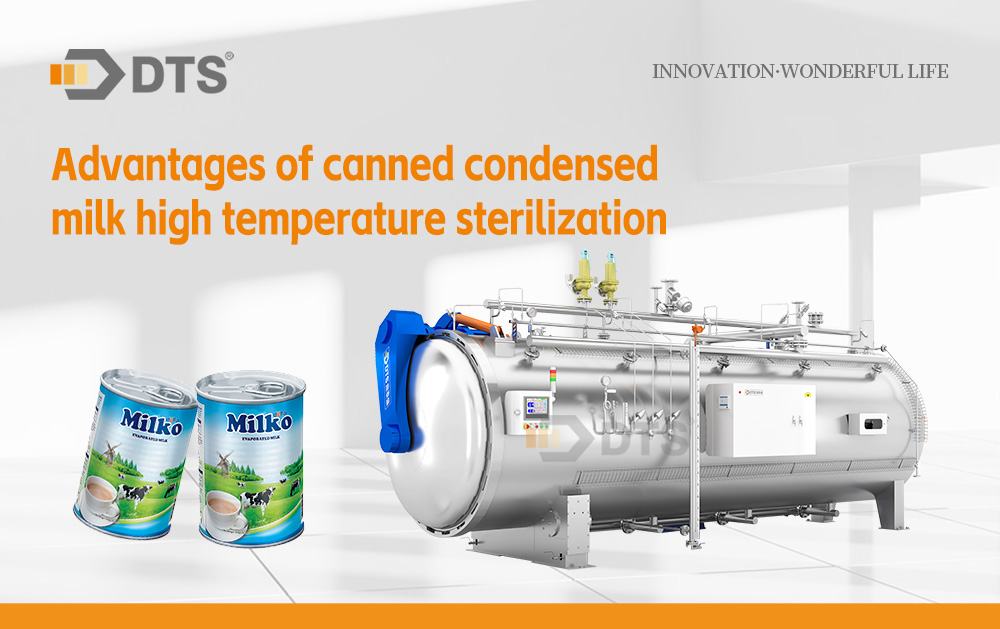


News

Condensed milk, a commonly used dairy product in people's kitchens, is loved by many people. Due to its high protein content and rich nutrients, it is very susceptible to bacterial and microbial growth. Therefore, how to effectively sterilize condensed milk products is crucial to extending their shelf life, ensuring product safety, and improving the taste of condensed milk. Therefore, the sterilization kettle is an essential link in the production process of condensed milk.In this article, we will introduce the methods and advantages of sterilizing condensed milk.
The main reasons and advantages of using tin cans condensed milk for high temperature sterilization are as follows:
1. The sterilization effect is significant: high temperature sterilization can effectively kill microorganisms, including heat resistant bacteria, in a short time, ensuring the commercial sterility of food. This is particularly important for condensed milk, a food rich in nutrients and prone to microbial growth.
2. Sensitivity of microorganisms to high temperatures: the sensitivity of microorganisms to high temperatures is much greater than the sensitivity of most food components to high temperatures, so high temperature sterilization can effectively kill microorganisms and maintain the quality of food as it should be.
3. Extend shelf life: by high temperature sterilization, the shelf life of food can be maximally extended, while the nutrients and flavor of the product can be preserved to the greatest extent possible due to the short duration of sterilization.
4.Suitable for tin cans packaging: the high temperature steam sterilization technique is suitable for rigid packaging materials such as metal cans with high thermal conductivity, such as stiff metal products, and tin cans, which are a type of metal material with high thermal conductivity, are very suitable for using this high temperature sterilization technique.
5.Prevent condensation in evaporated milk: add a rotating function to the steam sterilizer to make the evaporated milk rotate continuously during sterilization, preventing the condensation of milk protein during high temperature sterilization and the separation of whey. This ensures the taste and appearance of the product after sterilization.
6. Improve sterilization: high temperature sterilization technology is used, as all containers and equipment are sterilized by high temperature steam, resulting in high sterilization levels and very little residual air in the top space of the cans, which is in a high vacuum state, ensuring the quality and safety of the product.
In summary, tin cans condensed milk is suitable for high temperature sterilization, mainly because high temperature sterilization can effectively kill microorganisms, maintain food quality, and extend shelf life. At the same time, as a rigid and heat conductive packaging material, tin cans are very suitable for this sterilization technology. Using a steam rotary sterilizer to sterilize tin cans condensed milk can improve the efficiency of factory production and improve product quality.
